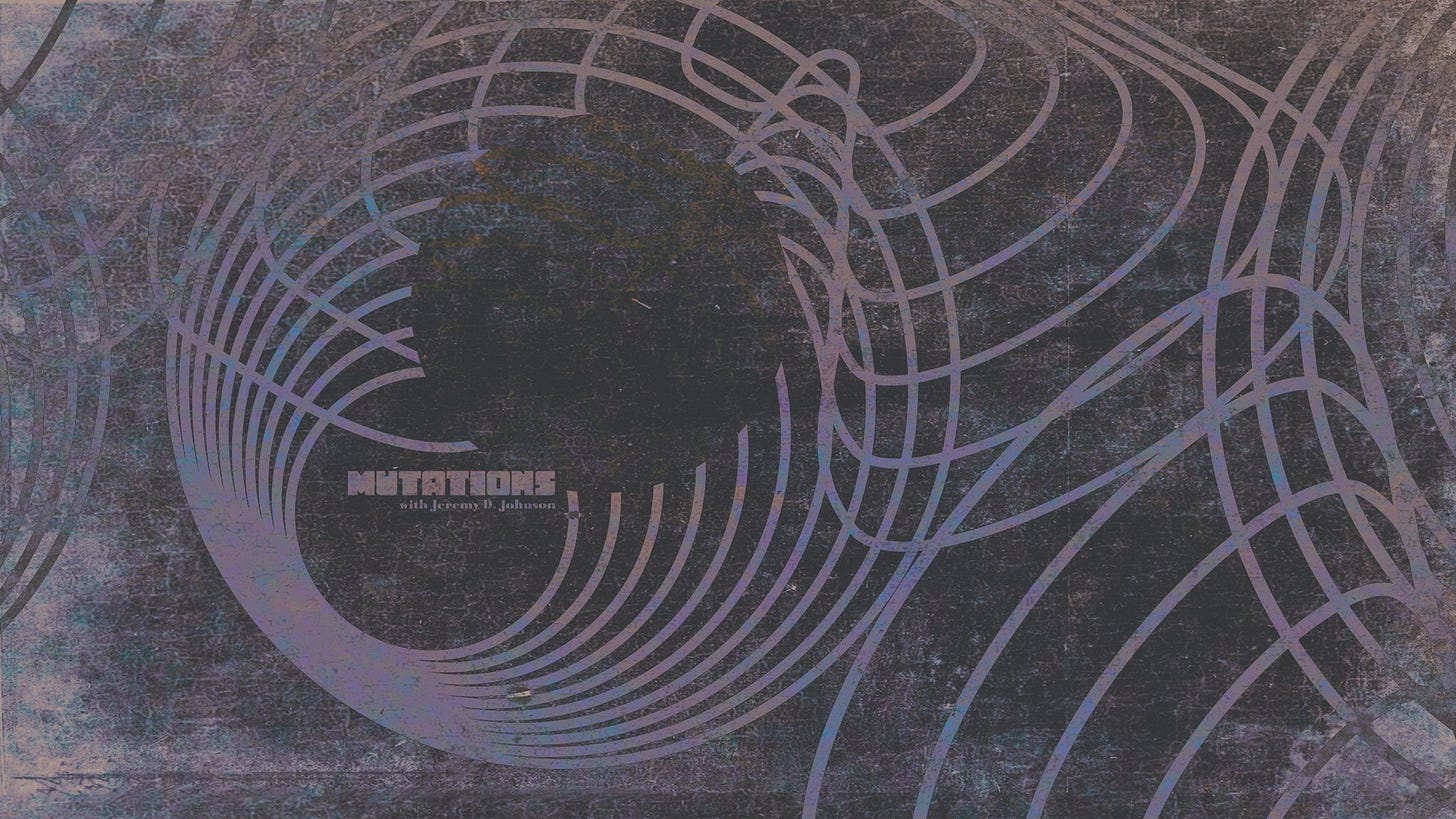Welcome to Mutations, a transdisciplinary project and virtual learning community.
First and foremost, Mutations is a weekly publication and monthly newsletter. Think of it as a digital commonplace book featuring philosophical fragments and literary essays that explore ecological imagination and planetary thinking.
Like the name suggests, ‘mutations’ is a zone for cultural transformation.
Mutations, as a project, is writing from the “in-between,” what Gloria Anzaldúa called nepantla (a Mexican Nahuatl word).
We live in a time between worlds and worldviews. Rather than decry these times, let us learn to live in the in-between. Let us learn to live in such a way that we become bridges between worlds and times.
Mutation is a creative and experimental space that celebrates transdisciplinary thinking and the philosophical history of transdisciplinary thought (from the German Romantics to the American Transcendentalists), finding inspiration from those artists and philosophers who made connections between art and science, philosophy and spirituality as they worked to re-vision the relationship between the human and more-than-human.
More than ever, we need integrative paradigms that reimagine our relationship with the world and give us permission to enact an altogether more creative, more participatory Gaian future.
It is a place for creative seekers and misfits who dare to imagine alternative futures.
Mutations is a call back to soul, an intensification of creativity and consciousness at the craggy shorelines of one worldview and the quiet, but assured, presence of another already beneath our feet.
This new worldview is relational and tentacular, distributed diachronically across the body of time-space. This ground rising to meet us is already present.
More than ever, we need a new sense of the possible — what Italian philosopher “Bifo” Berardi calls “futurability” — beyond the enclosure of capitalist realism.
Mutations, as a cultural project, explores how we can enliven our thinking and develop new senses that empower our creative agency to reshape ourselves and our world.
We are an intergenerational community of practitioners, spiritual seekers, and creators. Mutations continues to draw in artists, poets, academics, musicians, healers and writers who are lifelong students and creatives. They are often looking to connect with a community in the spirit of fellowship and mutual inspiration.
Joining the Mutations Community
All subscribers receive the minimum monthly newsletter in addition to new creative essays and articles exploring the themes of project. Joining the paid community helps to make this project sustainable and gives you access to:
Monthly community calls that rotate between Q&A with
, live Zoom calls with guest speakers and scholarsEarly access to unpublished writings and book excerpts
Discounted registration prices for online courses
Access to the Mutations Discord, and the Mutations Mighty Network hub (where our courses are offered)
About Jeremy:
Jeremy Johnson is a Mexican American writer and philosopher living in southern Vermont. He is the author of Seeing Through the World: Jean Gebser and Integral Consciousness (2019), the forthcoming book Fragments of an Integral Future (2024), and co-editor for the forthcoming inaugural Mutations anthology: Mutations Issue Zero: Mutations, Imagination, Futurability (2024).
Jeremy is a publisher (Revelore Press/Integral Imprint), editor (Integral Leadership Review) and editor for Transdisciplinary Leadership Review.
His academic research, writing, and publishing advocates new forays into integrative thinking and praxis—aligning the scholastic, poetic, and spiritual—as existentially crucial work for pathfinding in a time of planetary crisis.
Jeremy is a doctoral student in Philosophy at the California Institute of Integral Studies.




